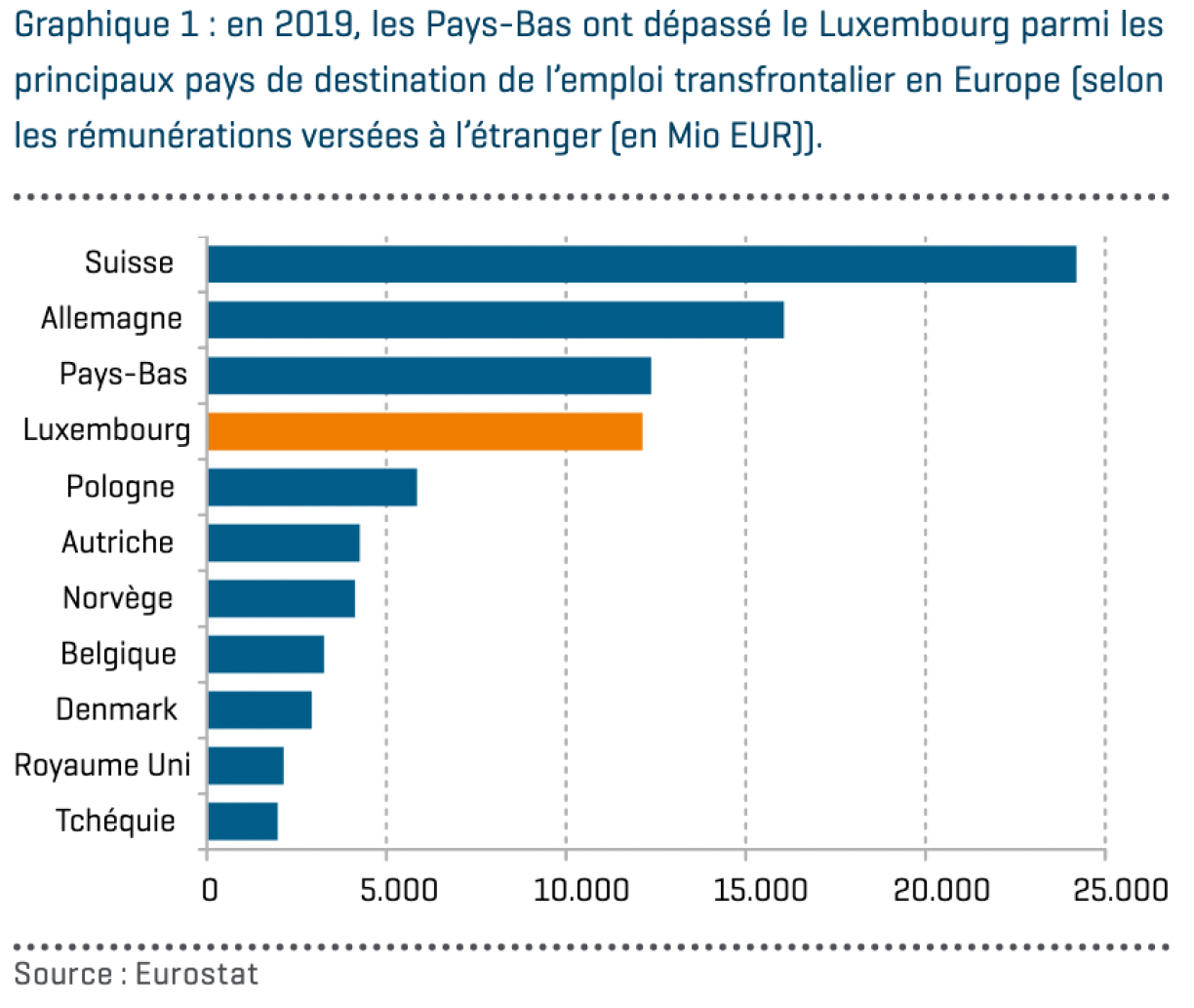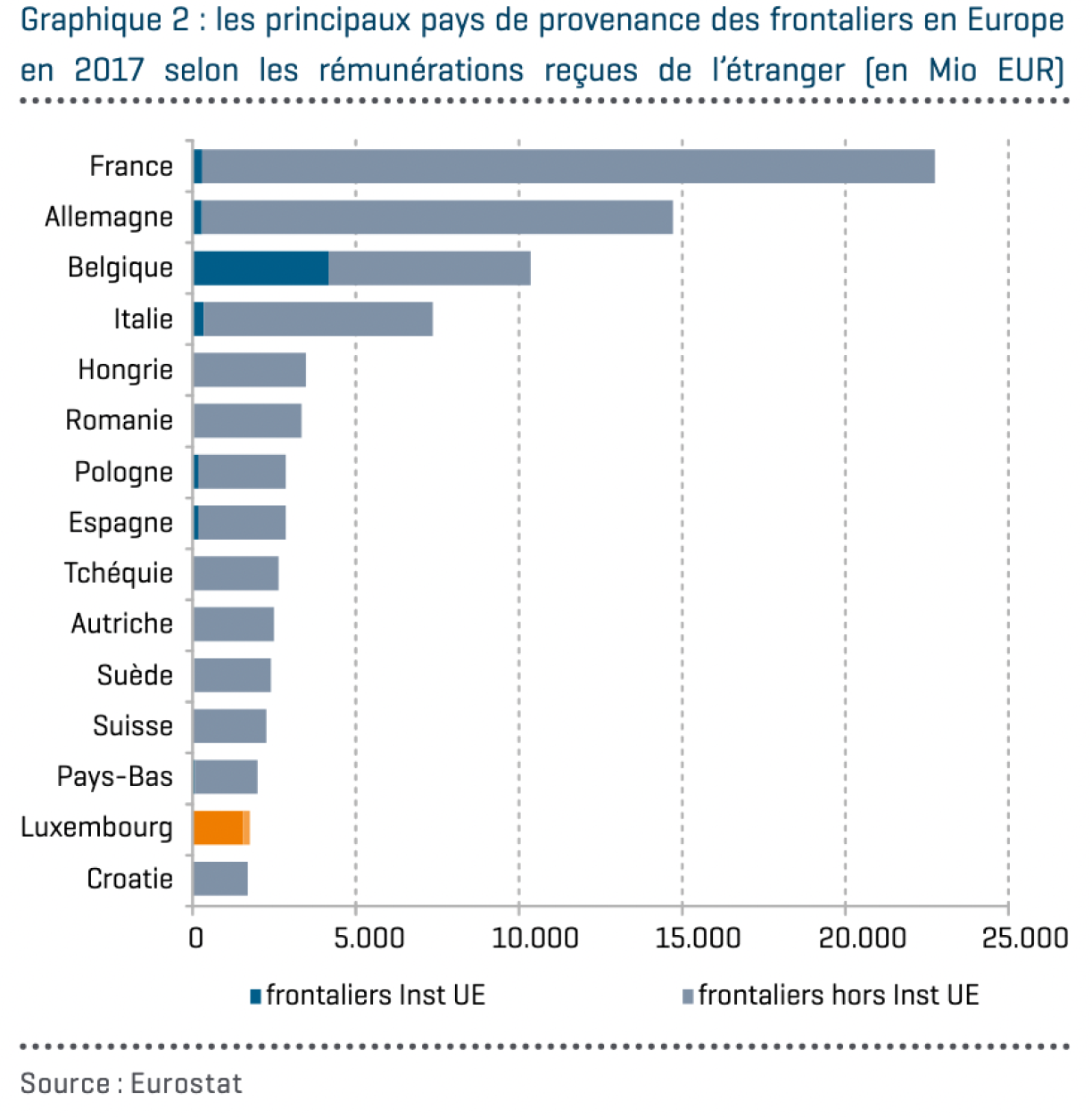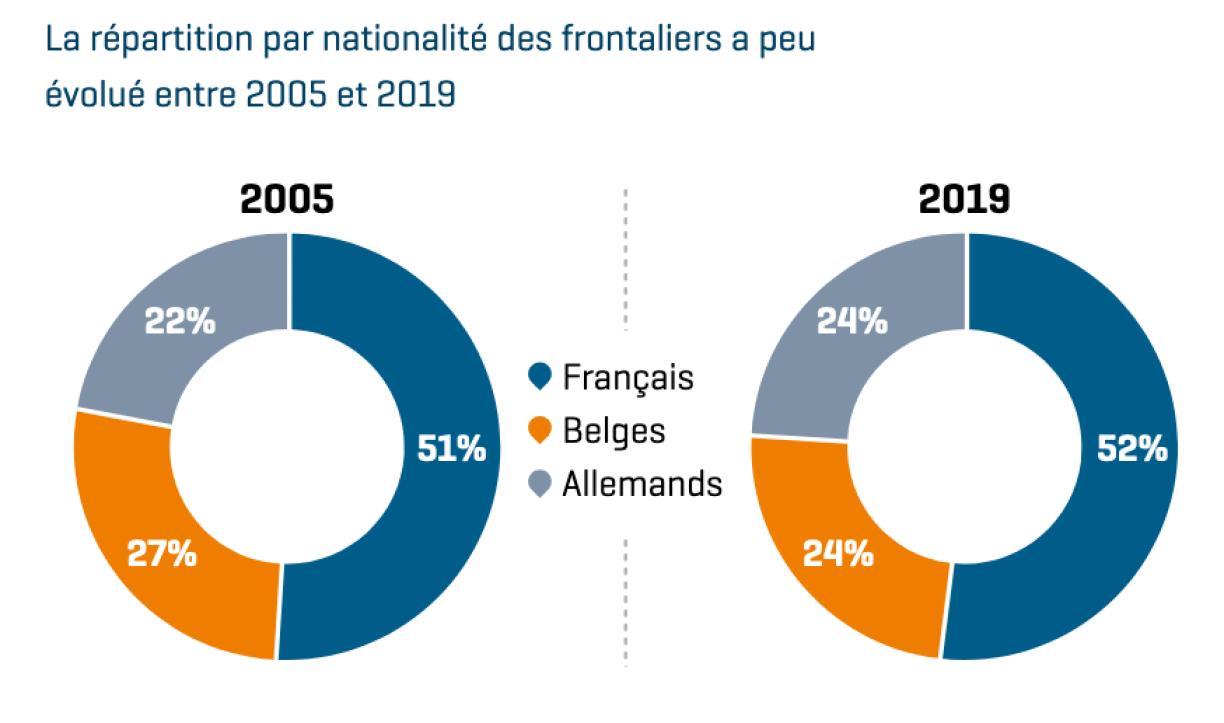
Apart from Luxembourg, Switzerland, Germany, and the Netherlands also have elevated numbers of cross-border workers entering the country on a daily basis.

Within the EU, France has the greatest fraction of people not working inside their own country. Germany ranks second, Belgium third. Italy follows not too far behind.

Between the years 2005 and 2019, the number of cross-border employees commuting to Luxembourg increased by 3.9% each year. The last 4 years even noted a 4.3% rise, while 2019 was marked by a plus of 4.6%.
A little more than half of Luxembourg’s cross-border workers come from France, a number that remained stable at 52% between 2005 and 2019. Germany registered a 2% increase over that same period, Belgium a 3% decrease.

All three of our neighbouring countries combined, 200,721 people commute to Luxembourg in total.
On average, French cross-border employees earn €10,400 less than those from Belgium, which also puts them €8,700 behind the annual average of German workers.
The difference can be explained through the industries in which people are employed. A large portion of French people work in the Horesca sector or in retail.
